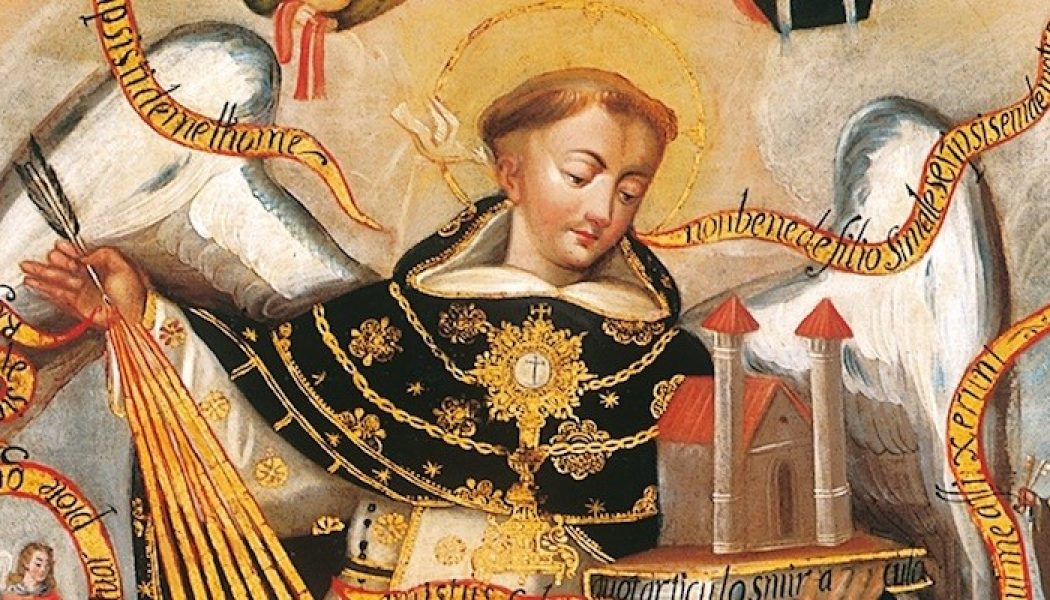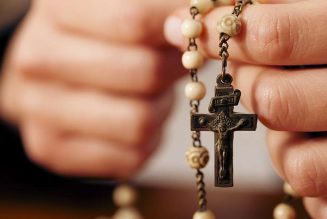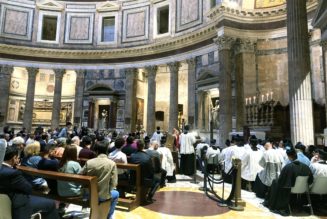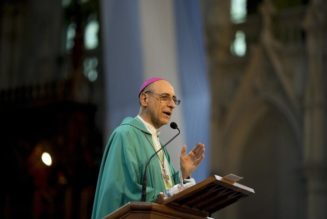
Aquinas 101 is a YouTube series produced by the Thomistic Institute. These videos seek to introduce viewers to the Christian intellectual tradition through the thought of St. Thomas Aquinas. The following text is from the lesson “Angels and Demons,” in which Fr. James Brent, O.P., discusses St. Thomas’s teaching on angels, both the good and the bad ones. He explains why angels are important, how we know they exist, and whether they exercise influence on creation today.
God has revealed to us the reality of angels and demons and by doing so, he is telling us something intelligible and wonderful, something that shows us the grandeur of God and illuminates our experience in many ways. We want to understand the angels as much as possible in order to understand the ways of God and the ways of the spiritual life. Thomas Aquinas is often called the angelic doctor because of his profound and extensive teaching on the angels, both the good and the bad ones.
What is an angel? An angel is a being or substance who is a pure spirit. Angels have intellect and will and so exercise knowledge and love, but they do not have bodies or live an embodied form of life. Each angel is essentially a center of consciousness without a body, but we need to qualify that and say that angels are conscious in a manner far beyond human beings. Since they do not have bodies, angels do not see, taste, smell, touch, hear, imagine, or recall sensory things—and they do not have sensory passions. For all of these activities and passions are the works of physical organs, and the angels have no physical organs.
Likewise, angels do not eat, sleep, smile, laugh, marry, make love, or have children. And they’re definitely not little babies flying around with wings as often depicted in art. Rather, each angel is a totally unique being specially created by God and endowed with powers for knowing, loving, acting, and rejoicing in a manner far beyond our way of doing these things. For we human beings do all these things as bodies, as organisms in a physical environment or biosphere. Angels exist in an altogether higher order of reality, which is not a physical environment and is not conditioned by space, time, or material limitations.
Now, this raises many questions and Thomas Aquinas aimed to answer many of these questions by thinking through what the Scriptures tell us about the angels and thinking it through with solid philosophical principles to help us understand the angelic order a little bit. For example, the Scriptures tell us that angels act in certain places around certain people. Angels are stationed at the Garden of Eden. Angels visit the patriarchs Abraham and Jacob. Angels lead the people of Israel from Egypt through the desert to the Promised Land. And angels ministered to Jesus himself after his temptations in the desert and again in the Garden of Gethsemane.
Aquinas calls all these works the angels carry out “the missions of the angels,” but the missions of the angels raise questions. If angels have no bodies, how can they be in a particular place? Only bodies are in a place and angels have no bodies. So how can an angel be, say, in the desert of Sinai or the Garden of Gethsemane? Aquinas answers that a thing can be in a place in two ways. First, by being contained in a place, like a pool ball is contained in its location on the table. But a thing can be in a place in another way—by influencing that place. For example, by establishing rules for their house, parents continue to exercise a felt presence or influence over their children even when the parents are out of the house. The children are aware of the presence of mom and dad, even in the physical absence of mom and dad, because of the influence the parents exercise. When the Scriptures say that the angels are here or there, that means the angels are influencing the physical things or people in those places, but the angels are not contained in any one of those places.
Watch the rest of the lesson:
Fr. James Brent, O.P., is assistant professor of philosophy at the Pontifical Faculty of the Immaculate Conception in Washington, D.C.







